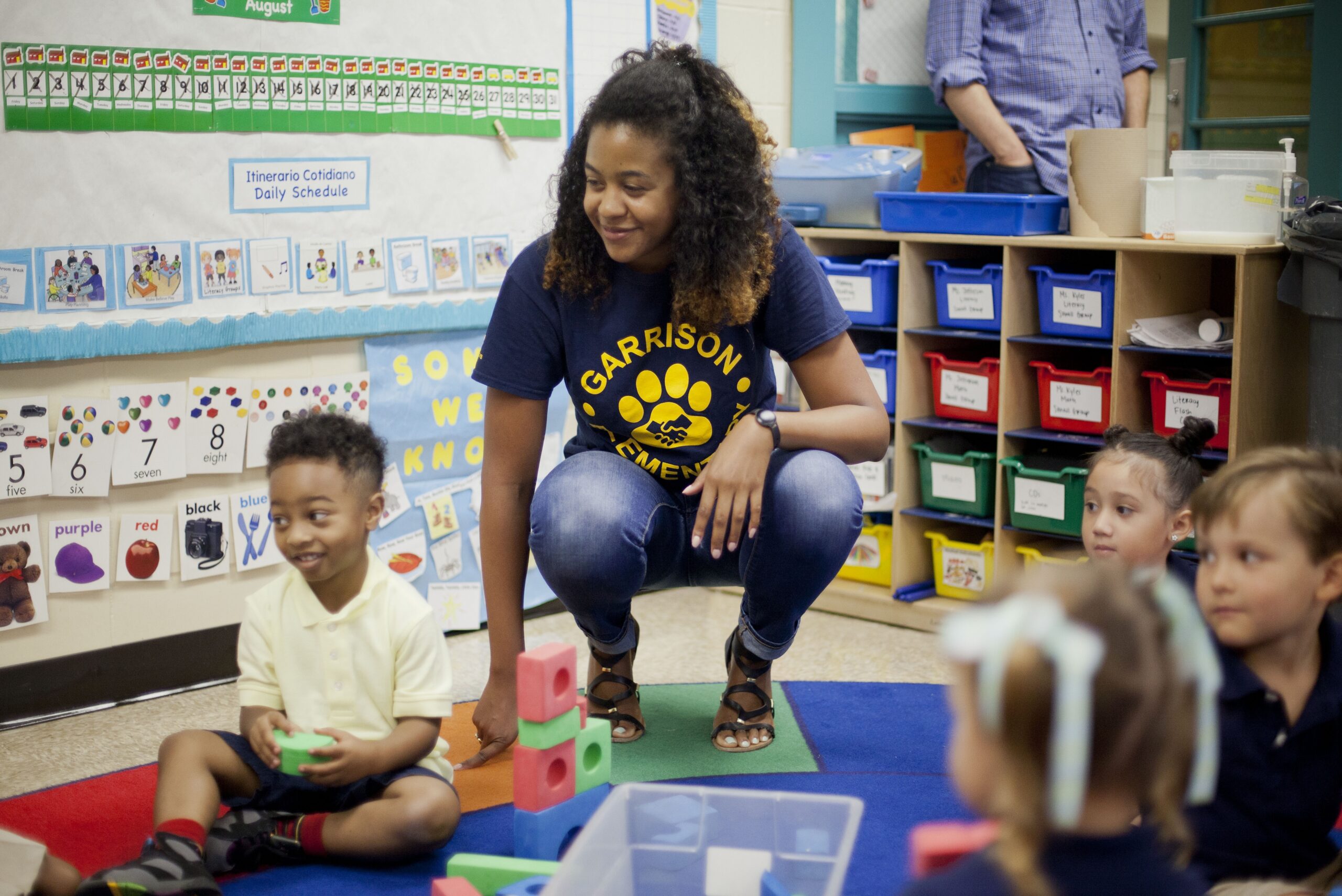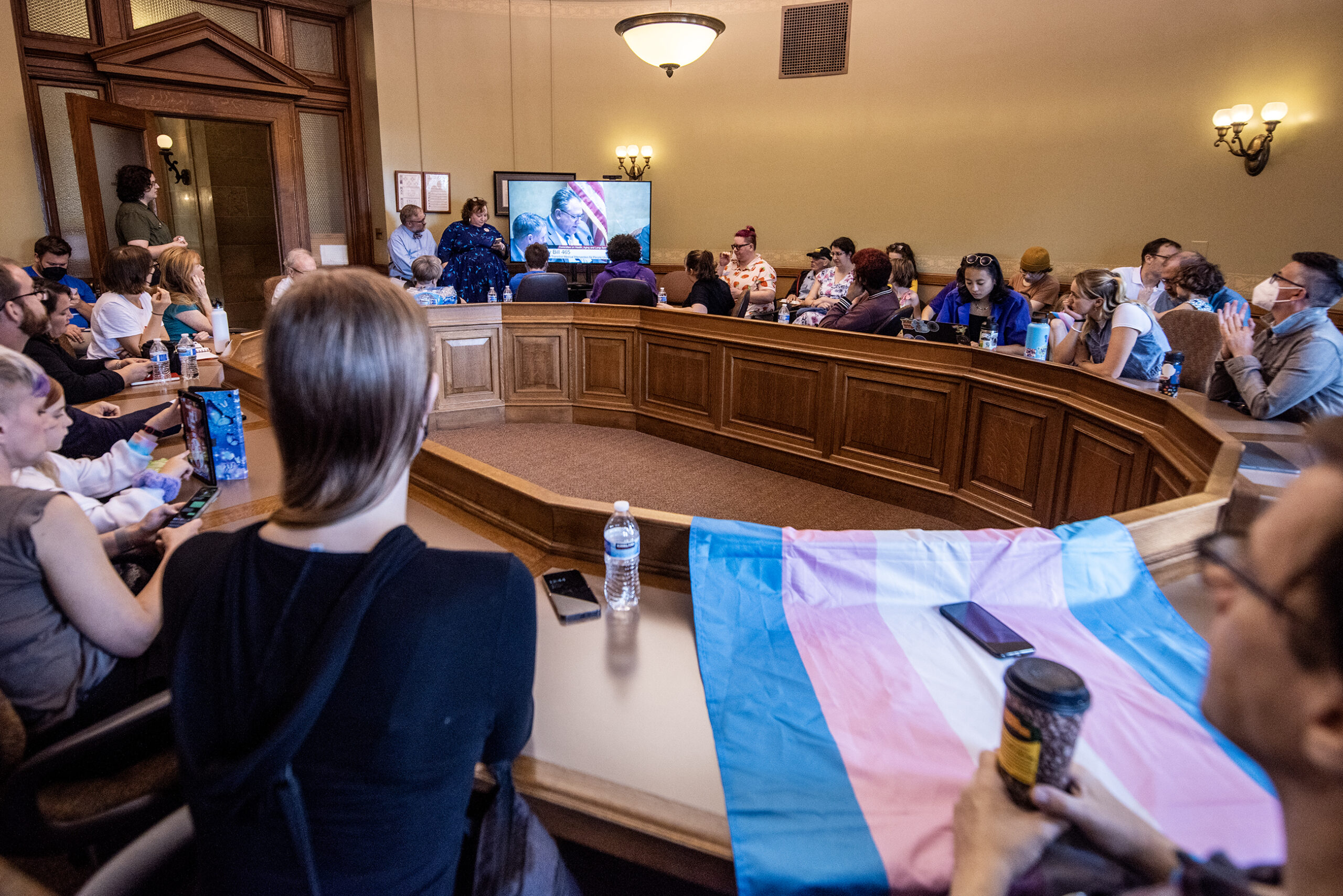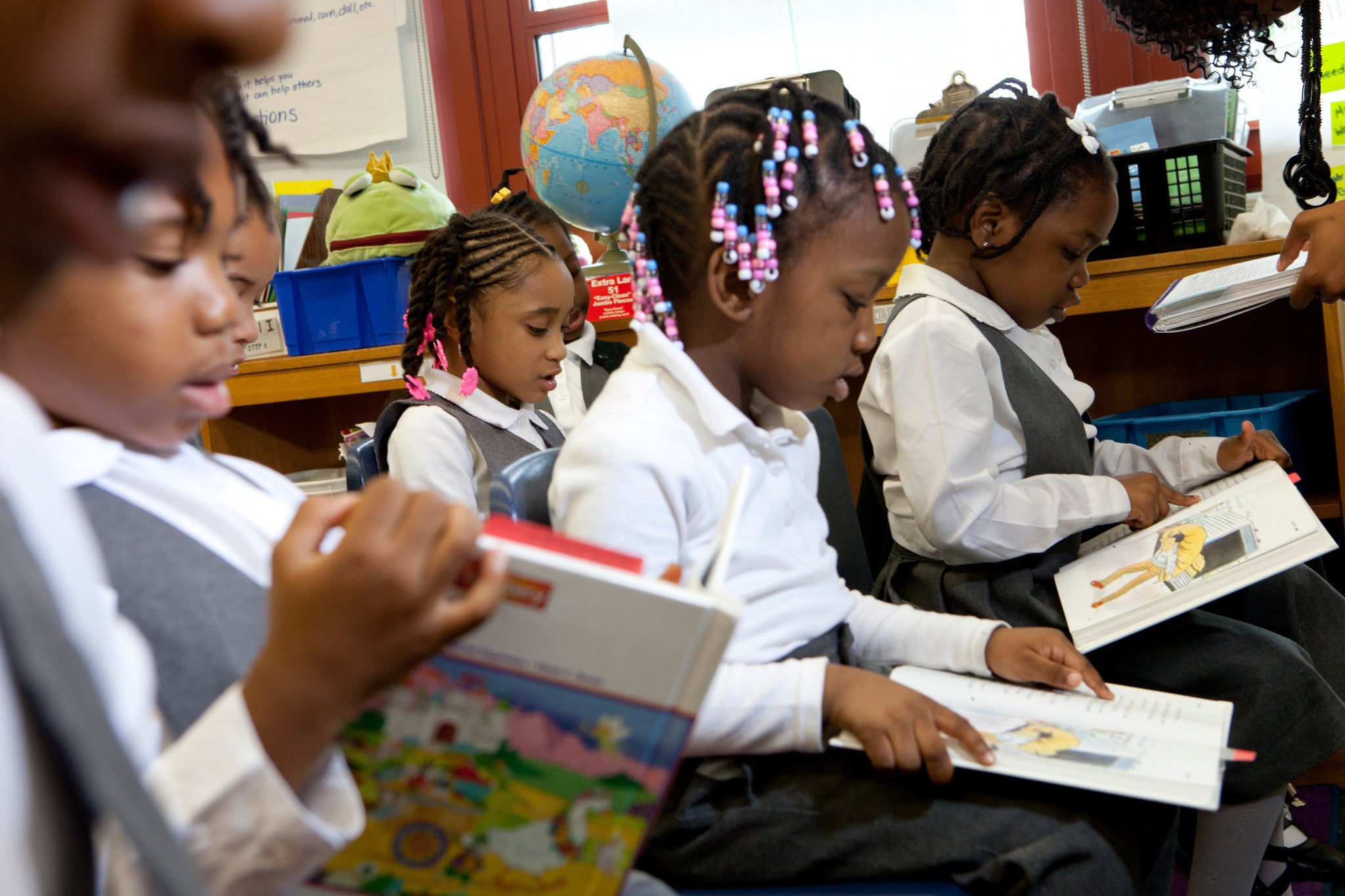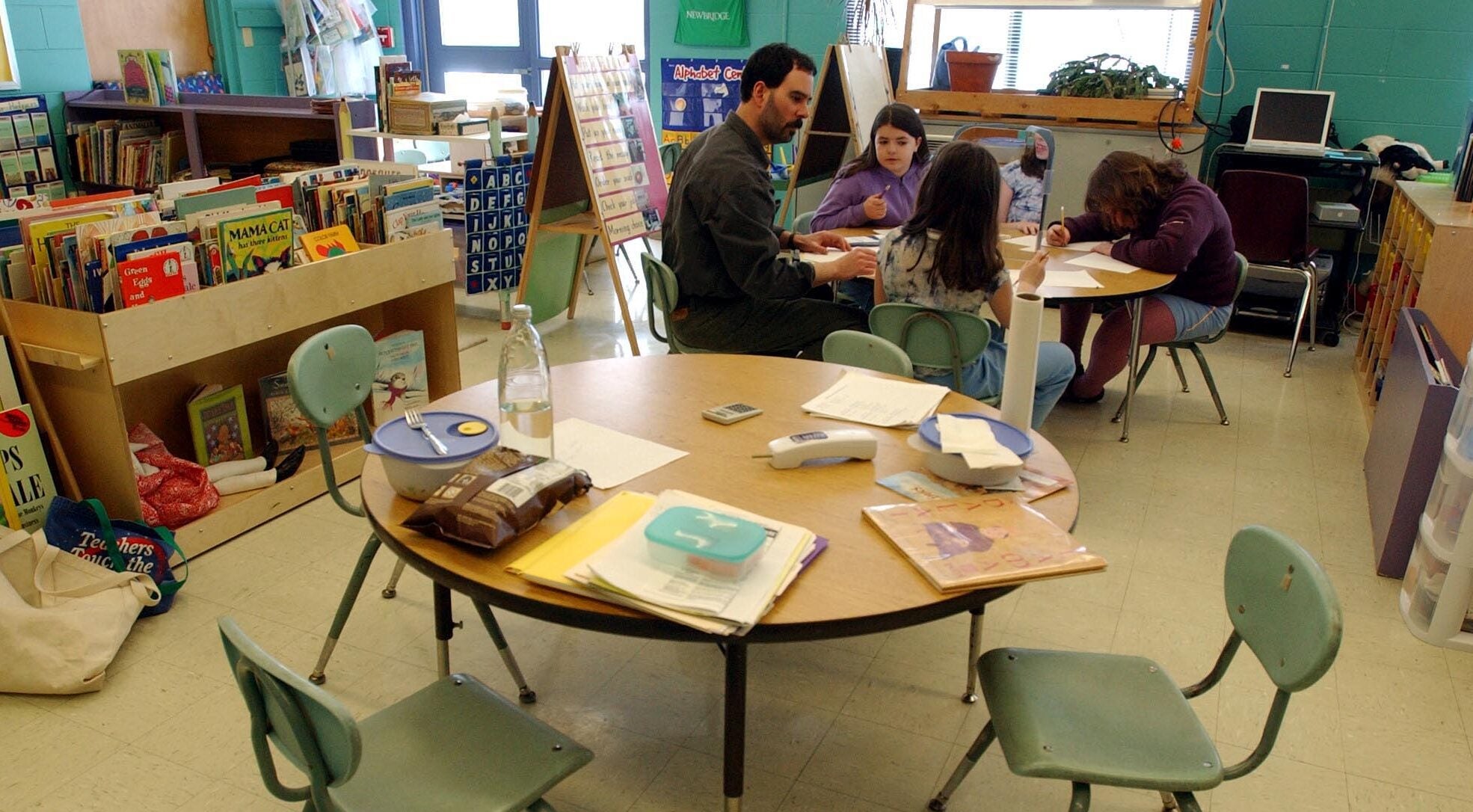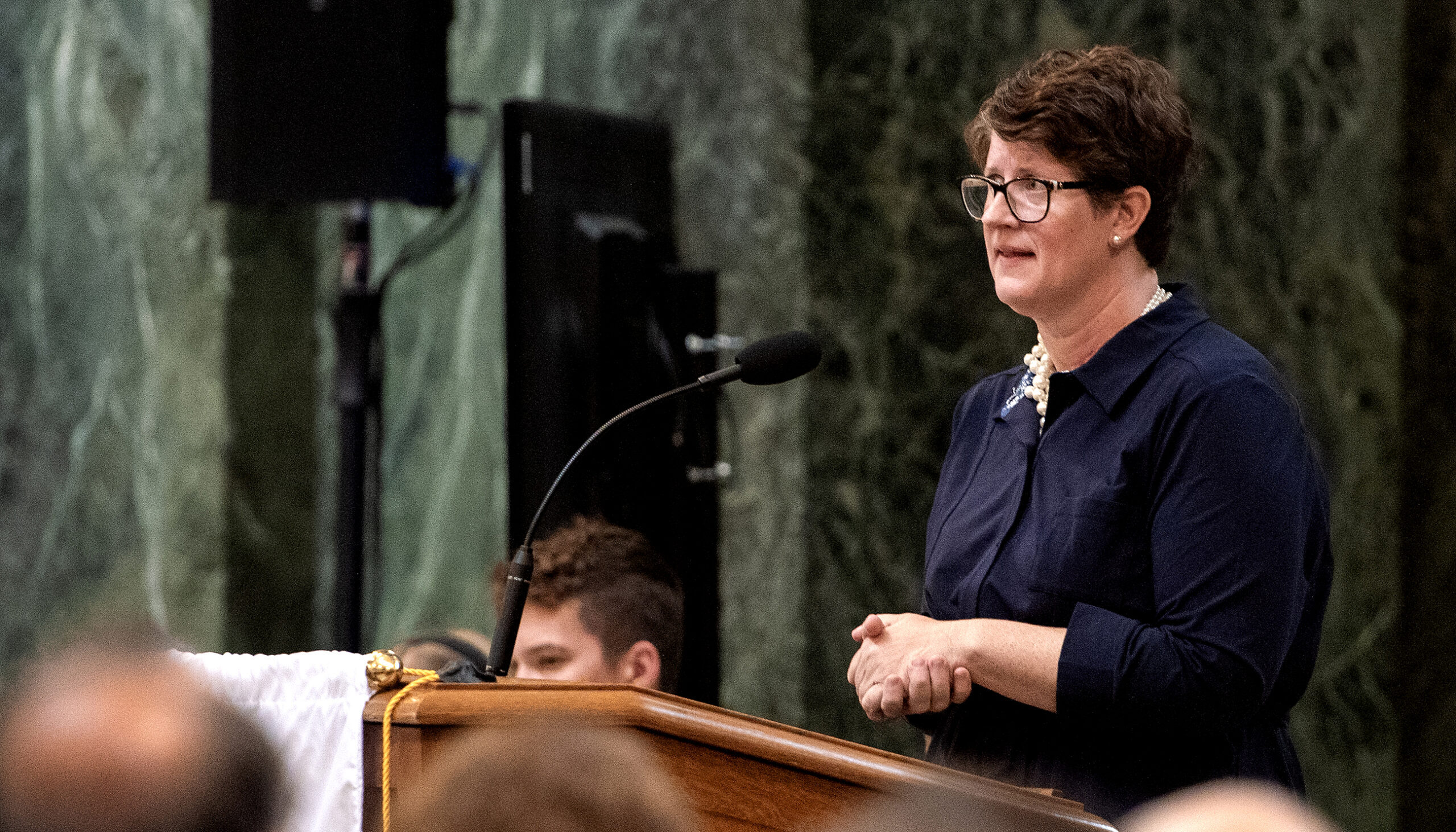Two new pieces of legislation being considered at the state Capitol would fully fund and expand kindergarten for Wisconsin’s 4-year-old students.
In the majority of Wisconsin school districts, 4-year-olds are able to attend kindergarten through programs funded by the state, but they typically only cover half of the school day — making it difficult for many parents to enroll their children.
Both of the bills come from the Blue Ribbon Commission, a committee that gathers input on K-12 issues around the state.
Stay informed on the latest news
Sign up for WPR’s email newsletter.
One of the bills would fully fund full-day 4K. The other would scale back age restrictions and allow some 3-year-olds to attend 4K early.
State Sen. Luther Olsen, R-Ripon, co-sponsor of the legislation, said the bills would address the achievement gap, and help parents who work full time.
“Research shows for brain development, we need to get kids in school earlier,” he said. “One of the other things that I think is the biggest factor in this bill is, we’re trying to close the achievement gap.“
There has been some opposition to the legislation, predominantly from private day cares. Critics say day care settings are better suited for the developmental levels of 3- and 4-year-olds.
Olsen countered that during testimonies they heard positive responses from public school districts.
“Some of the school districts that came in that have large populations of poverty really, really want this in the worst way because they need all the help they can to get their kids going,” he said.
Beth Graue, director of the Center for Research on Early Childhood Education, applauded the legislation, but noted the need to tread carefully.
“I think it’s really exciting,” she said. “It would fill needs for lots of families, but it has to be implemented in a way that recognizes that 4K sits at an intersection — at the intersection of K-12 education and the child care community.”
Graue said that to do it well, there should be a combination of the two.
“In the child care centers, you have much more focus on developmentally appropriate practice,” she said. “In the school-based programs, there are a lot of places that focus on developmentally appropriate practice, but there’s more of a focus on the academic piece.”
Studies show that the biggest advantages of publicly funded pre-K programs come for children who live in poverty and for English language learners, Graue said.
“They get the biggest bounce and that probably is because it’s the children who are in more affluent families that can find their way into high quality programs,” she said.
Graue said the legislation would be the first step of a bigger process.
The bills include sponsors from both parties in the state Senate and Assembly.
Gov. Tony Evers’ budget request for fully funded 4K was previously rejected by GOP lawmakers. Olsen said a vote will likely take place in late winter or early 2020.
Wisconsin Public Radio, © Copyright 2025, Board of Regents of the University of Wisconsin System and Wisconsin Educational Communications Board.
